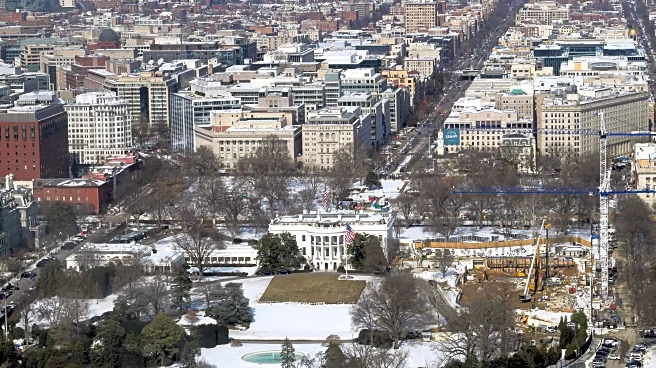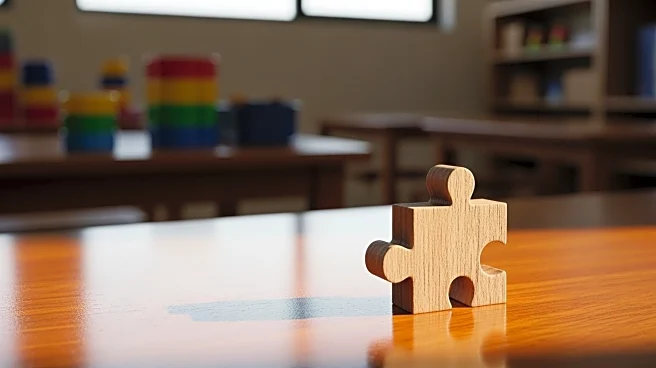What's Happening?
Mohammed Ibrahim, a Palestinian-American teenager from Florida, has been detained by Israeli forces since February for allegedly throwing stones in the West Bank. His case falls under special security
provisions enacted after the Hamas-led attacks in October 2023, which classify stone-throwing as a serious offense. Despite being a U.S. citizen, Mohammed has been held without family visits or phone calls, and faces up to 20 years in prison if convicted. His hearings have been repeatedly delayed, with no plea bargain or trial date set. The U.S. Embassy has been allowed to visit him, reporting concerning health issues including significant weight loss and scabies. Members of Congress have urged the U.S. government to intervene for his release, citing signs of torture.
Why It's Important?
The case highlights the complex legal and diplomatic challenges faced by U.S. citizens detained abroad, particularly in conflict zones. It underscores the tension between U.S. diplomatic efforts and Israeli security policies. The involvement of U.S. lawmakers reflects growing concern over human rights and the treatment of minors in military courts. The situation could impact U.S.-Israel relations, especially as public opinion shifts regarding support for Israeli policies. The case also raises broader questions about the application of military law and the rights of detainees, potentially influencing future diplomatic and legal frameworks.
What's Next?
Mohammed's next court hearing is scheduled soon, where his family hopes for a resolution, either through release, a plea bargain, or a trial date. The U.S. government continues to monitor the situation closely, with diplomatic efforts ongoing. The outcome of this case could set a precedent for similar cases involving U.S. citizens and influence future diplomatic engagements between the U.S. and Israel. The Ibrahim family faces the challenge of informing Mohammed about the death of his cousin, another U.S. citizen, during his detention.
Beyond the Headlines
The case raises ethical concerns about the treatment of minors in conflict zones and the use of military courts for civilian offenses. It highlights the psychological and physical toll on detainees and their families, as well as the broader implications for human rights advocacy. The situation may prompt discussions on international legal standards and the role of diplomatic intervention in protecting citizens abroad.











